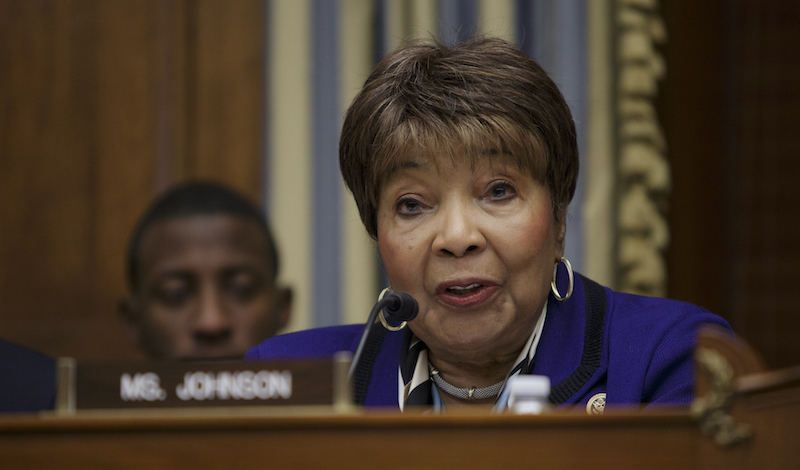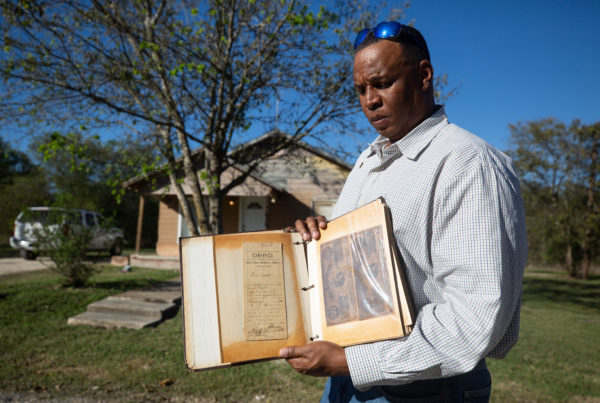Eddie Bernice Johnson, described by some as the dean of the Texas congressional delegation, has announced she won’t be running for a 16th term.
Johnson has spent more than 40 years in public office, nearly 30 of those years representing Texas’ 30th Congressional District, which covers much of the city of Dallas and Dallas County. She was the first nurse to be elected to the U.S Congress, the first Black woman elected to state public office from Dallas, as well as the first African American and woman to be the chair of the House Committee on Science, Space and Technology.
Johnson spoke with Texas Standard about her reasons for deciding not to seek reelection, and how she hopes another Black woman will take her place. Listen to the interview in the audio player above or read the transcript below.
This interview has been edited lightly for clarity.
Texas Standard: This must have been a difficult decision for you after 30 years on Capitol Hill. What was the deciding factor?
Rep. Johnson: Well, I had decided last primary. I had told the voters in the 30th [District] that that would be my last primary. I had lots of pressure to continue, and I began to think about continuing. But the final decision: I had promised my family that after that I would retire. I decided to go ahead and do that. Now, of course, age had something to do with it, and the fact that it’s time for change for me. I’ve enjoyed working in the Congress. It has not been easy, but it has kept my attention, and I was determined to try to get something accomplished. And so it kept drawing me to continue to run.
Do you have an accomplishment that you consider to be your proudest?
I’m not even sure that I can say what I consider my proudest accomplishment. One of the accomplishments that has lasted over the years and I’ve gotten great return reviews is when in Texas, and the Texas House, passed a bill to mandate school breakfasts as long as the federal program made the assistance. It was challenged all the way to the Supreme Court by two different school districts, and upheld, and I’ve gotten tremendous reports back from the reporting agencies that student performance has been greatly improved where they can have a little breakfast when they get to school. And so I continue to be proud of that fact that it helps children get a good start and keep their attention on their education.
When you got started in the U.S. Congress, it was a different place. There used to be a greater spirit of bipartisanship than there is today. Do you sense that there’s been a change, and was that a factor in your decision not to run again?
There is a great change; it’s a very challenging change. And I think that redistricting and extreme gerrymandering has added, that really encourages extremes. And so, yes, that has affected the whole process. But no, that had nothing to do with my decision. If nothing dramatic happened, I was not discouraged because I have operated in the minority more than I have the majority since I’ve been there.
So whether or not that had an effect on me? No, it did not, because when I became chair of this [House Science, Space and Technology] Committee three years ago, I had been in Congress already 26 years and only been in the majority of six of those years: the first two years of the Clinton administration, the last two years of the Bush administration [and] the first two years of [the] Obama administration were the only times that I had been in a majority. So I had gotten very accustomed to keeping my mind on work and making sure I was not wasting my time waiting to be in the majority of the party.
As The Washington Post was reporting on your announcement to retire from Congress, it set off a scramble for people seeking to represent the 30th Congressional District. Are you going to endorse anyone?
Yes, I am going to endorse; I’ve decided who. I think that it’s only fair to the people to make a recommendation. … As I emphasize, this job is not just a title; it is a responsibility. And so, glamor has nothing to do with the work, but experience and working across the aisle in a deliberative body I think helps to adjust to going into a job that, with the expectations that the person is to produce, to represent their constituency in the way that is appropriate.
I see a number of people interested; some want the title. Some of them really want to be successful, and meeting many of the needs of the constituencies, and there are many. This district is very diverse; each time they redistrict, I get more and more minorities. And so the work goes on, the needs go on. And you can’t confine all of your contributions to just your district. I’ve looked out for my state, and I’ve looked out for every part of the state when someone comes to me with interest on the committees on which I serve. I have served on the same two standing committees the entire time I’ve been there: Transportation and Infrastructure and Science, Space and Technology.
And all of the various conversations that come to me where there’s a need within the state anywhere that I can have some influence on trying to bring it to pass, I tried to do that. I’ve gotten water supply around the state, for both drinking water; we also worked on prevention of flooding. It’s endless what you can do, and impact, when you focus on the needs of the people and of the state’s responsibility.
I’m proud of the fact that we’ve got some grid legislation in the big infrastructure package. A number of independent bills that I had passed in the House, I was able to negotiate them going into the big infrastructure package. I’m very proud of that.
You broke so many barriers as a Black woman in Congress. How important is it for another Black woman to take your place representing the 30th District at the U.S Capitol?
I think it’s very important, and I have asked, when I made my announcement, I asked the voters, I told them my preference would be – we have two African American men in the North Texas area, and I would really like to see a woman. I have tried my best to encourage women and men, but especially women, to participate. There is not a subject anywhere of any sort that does not concern women – whether it involves money, people, progress, whatever. Women have a role to play. Every issue is a woman’s business. And I just feel that I’d like to see a young, qualified woman take my place, and I’d like to see her supported to get things done.
You’ve got to stay there a little while in order to get into the rhythm of working across the aisle, focusing on facts and focusing on the work rather than glamorizing the position. It is not a position of glamor; it is one of responsibility.














